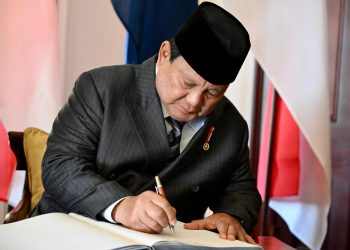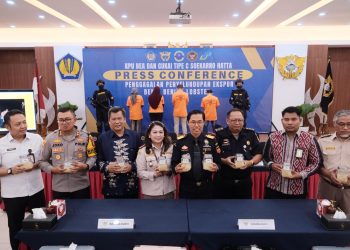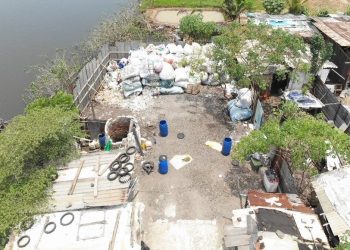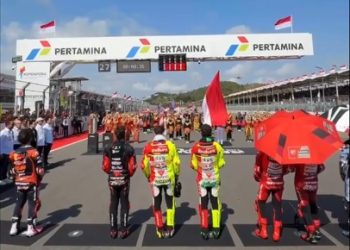Jakarta, Indonesia Sentinel — Indonesia has decided to release Filipino death row convict Mary Jane Veloso and repatriate her to the Philippines to serve the remainder of her sentence. The death row convict will soon return to the Philippines after more than a decade of Philippine diplomacy and consultation with the Indonesian government to delay execution.
Coordinating Minister for Law, Human Rights, Immigration, and Penitentiary Affairs, Yusril Ihza Mahendra, announced that Indonesia had received the formal request from President Marcos for Veloso’s return.
Veloso was arrested at Adisutjipto Airport in Yogyakarta on April 25, 2010, for smuggling 2.6 kilograms of heroin. In October 2010, the Sleman District Court sentenced her to death under Article 114(2) of Indonesia’s Narcotics Law (Law No. 35/2009).
A Controversial Case
Mary Jane Veloso was among the convicts slated for execution in April 2015 on Nusa Kambangan Island. She claimed to have been duped into transporting the drugs. The Philippine government previously sought clemency for Veloso, and her mother made a personal appeal to then-President Joko Widodo. However, both requests were denied by President Jokowi.
Currently, Veloso is detained at the Class II-B Women’s Penitentiary in Yogyakarta. Yusril indicated that her transfer is expected to take place in December 2024, with her future punishment subject to Philippine law.
Social Media Uproar Calls for Frugal Living as Indonesia’s VAT Hike to 12%
The Indonesian government has left the decision regarding her legal status to Philippine President Ferdinand R. Marcos Jr.
“In Mary Jane’s case, sentenced to death in Indonesia, it is possible that President Marcos could grant clemency and commute her sentence to life imprisonment, as the death penalty has been abolished in the Philippines,” Yusril said in a written statement on Wednesday, November 20, 2024.
Indonesia has no objections if the Philippine government decides to grant clemency to Mary Jane Veloso. However, Indonesian officials clarified that any reduction in her sentence would not come from Indonesia.
“Our president has consistently refused to grant clemency to drug offenders,” said Coordinating Minister for Law, Human Rights, Immigration, and Corrections, Yusril Ihza Mahendra.
Legal and Diplomatic Considerations
Yusril stressed that Indonesia is not pardoning Veloso but repatriating her under a prisoner transfer agreement.
The minister outlined several conditions for countries requesting a prisoner transfer:
- Recognition and respect for the final verdict handed down by Indonesian courts against their nationals for crimes committed in Indonesia.
- The transferred convict must serve the remainder of their sentence in their home country, in accordance with the Indonesian court’s decision.
- The requesting country must bear all costs related to the transfer and security during transit.
President Prabowo Subianto has been fully briefed and has approved the policy, Yusril confirmed.
“This decision was carefully discussed across ministries under the coordination of the Ministry of Law and Human Rights and subsequently reported to President Prabowo, who approved this prisoner transfer arrangement,” Yusril stated.
The transfer of Mary Jane Veloso underscores Indonesia’s firm stance on drug-related crimes while balancing international cooperation through prisoner transfer agreements. As Veloso prepares to return to the Philippines, her case serves as a poignant reminder of the far-reaching consequences of drug offenses and the complexities of justice across borders.
(Raidi/Agung)


























